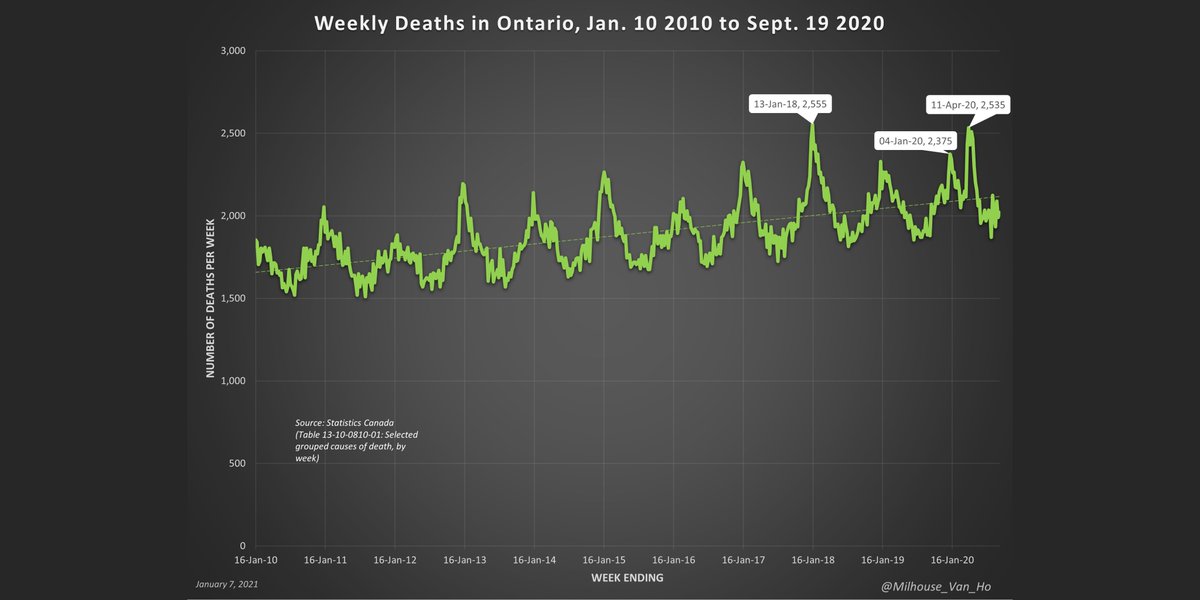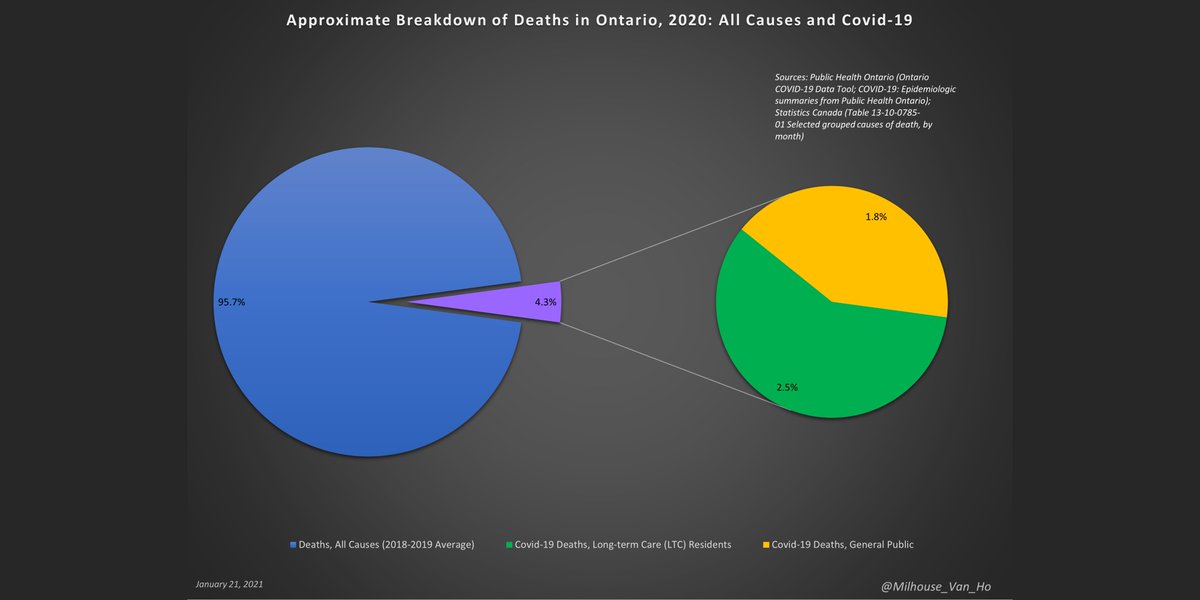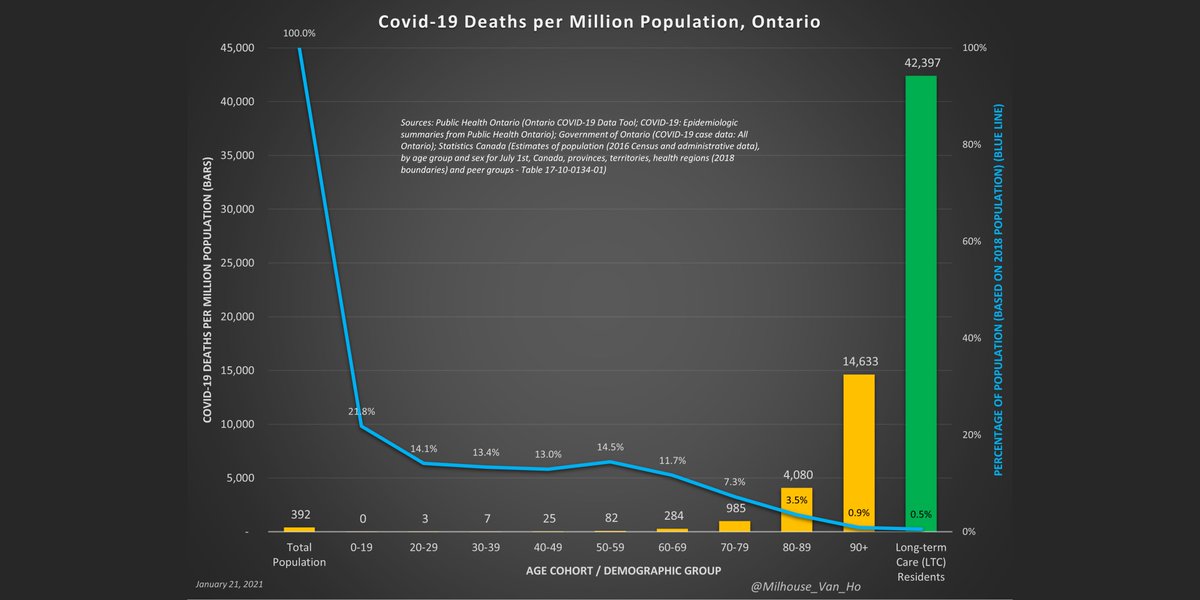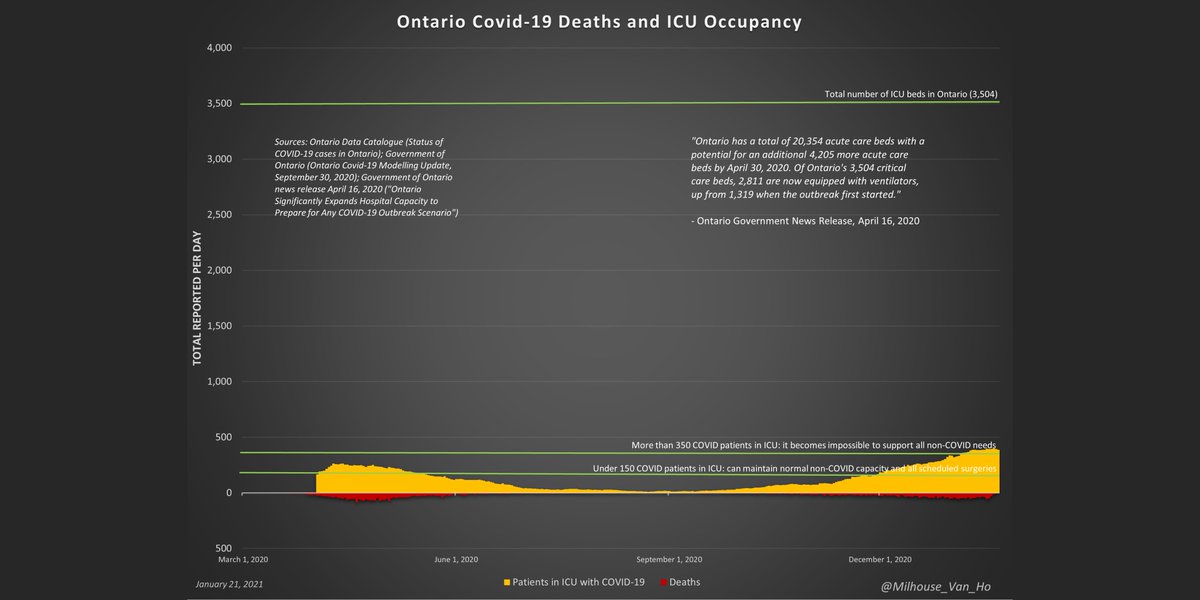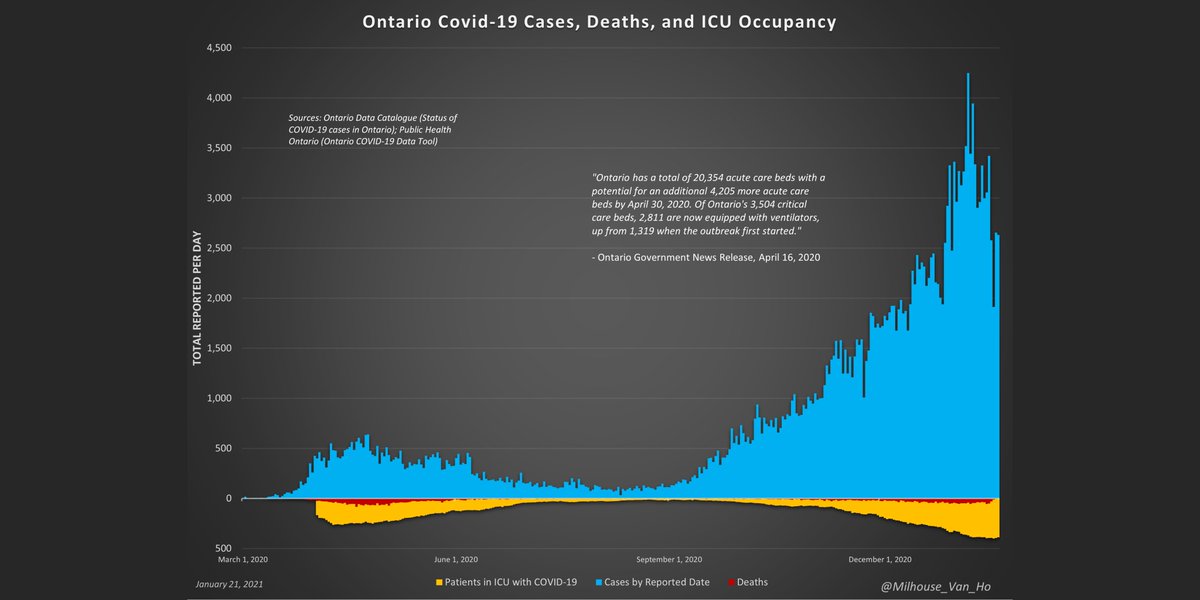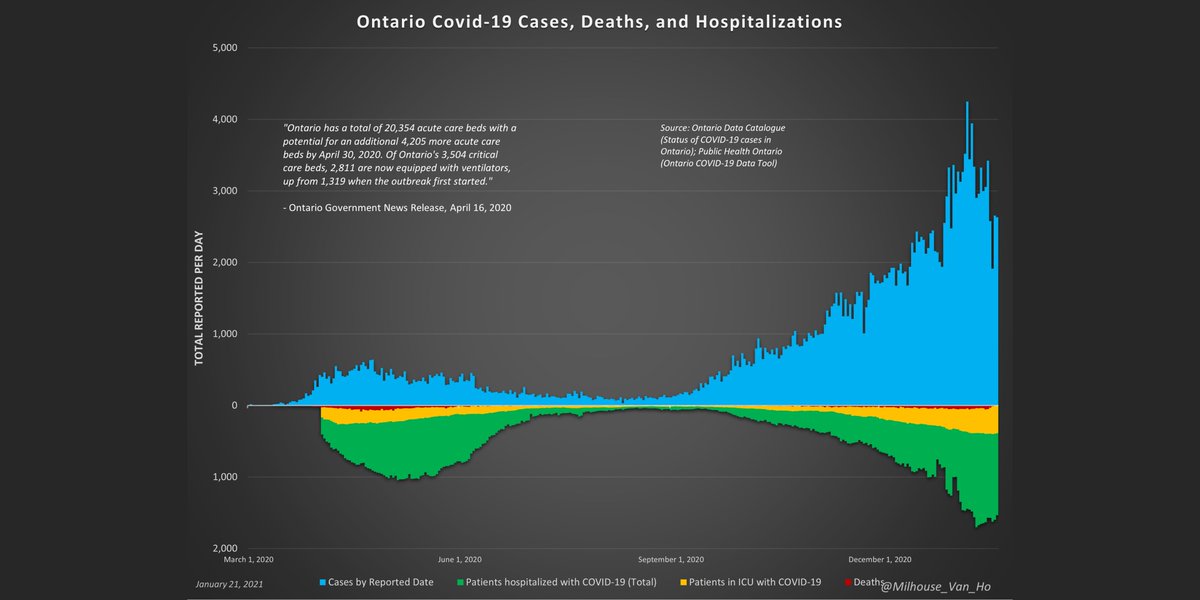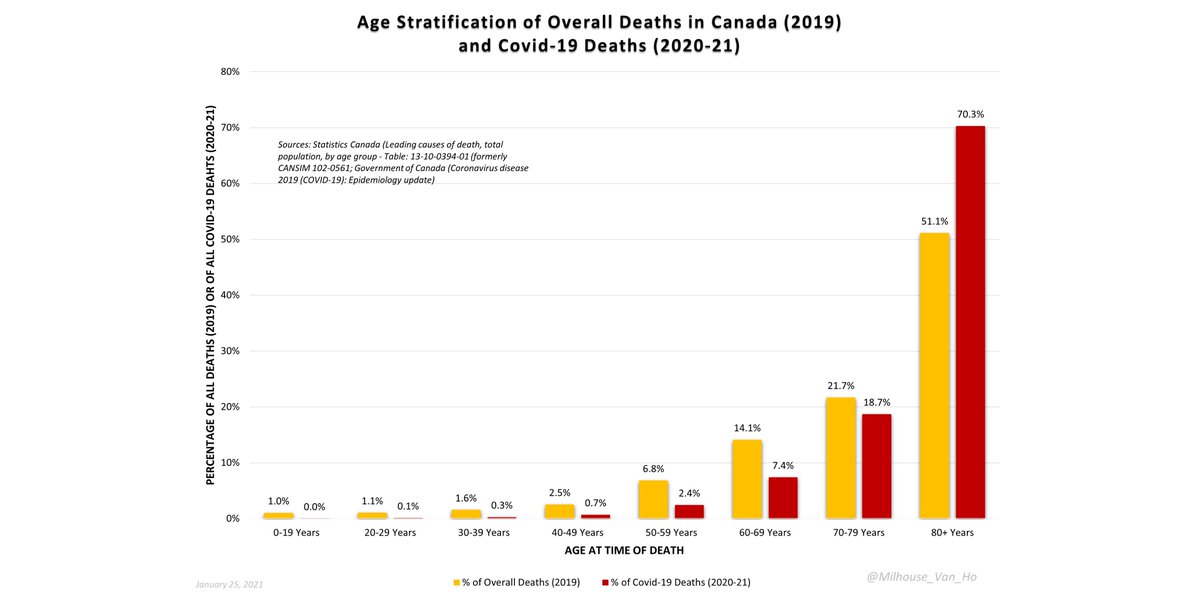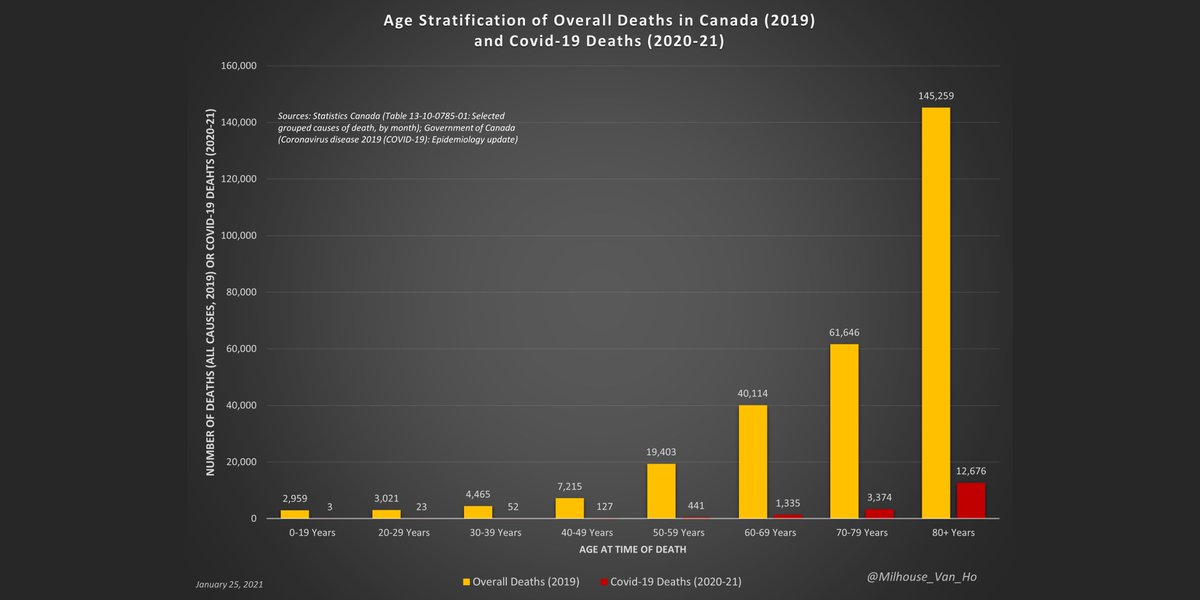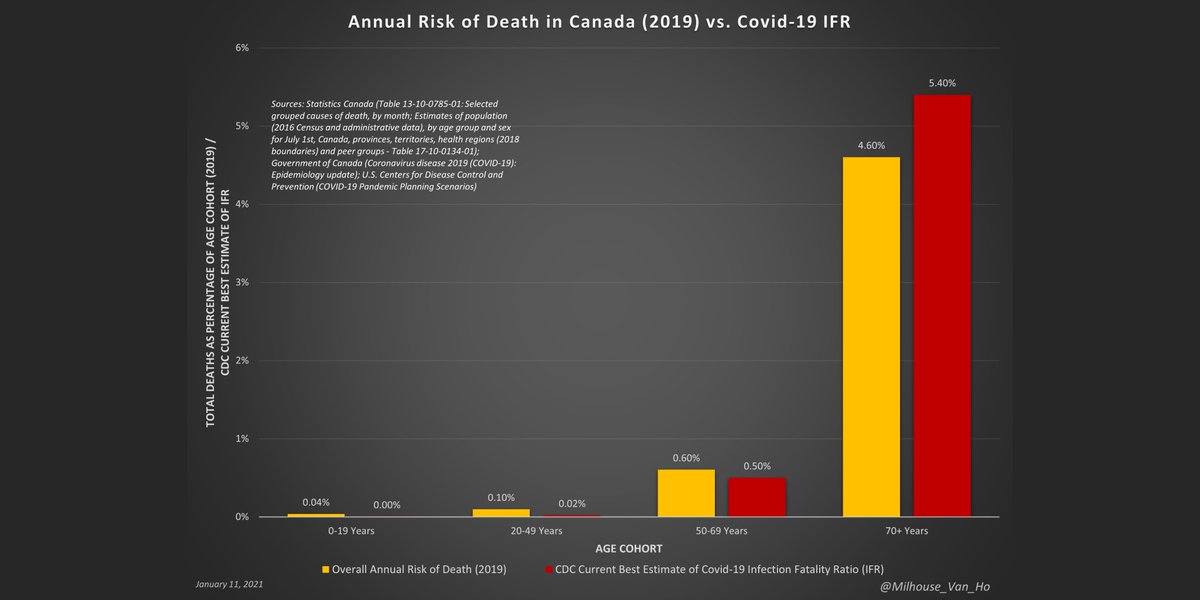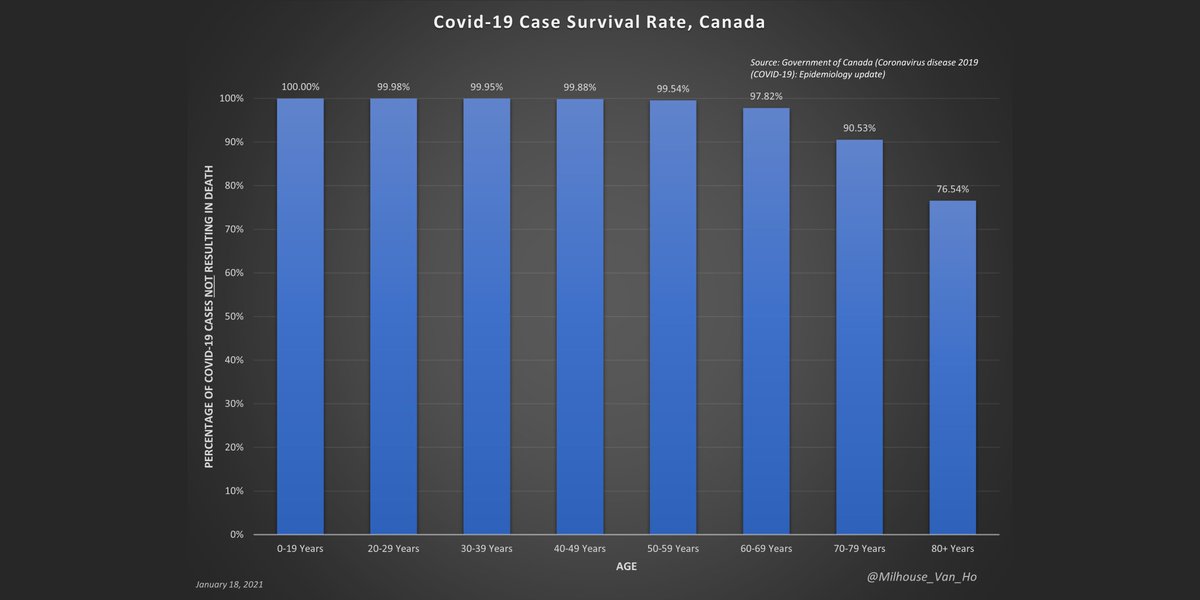
Ontario update.
#covid19ontario #COVID19 #covid19Canada
Ontario covid-19 cases, deaths, and testing.
#covid19ontario #COVID19 #covid19Canada
Ontario covid-19 cases, deaths, and testing.
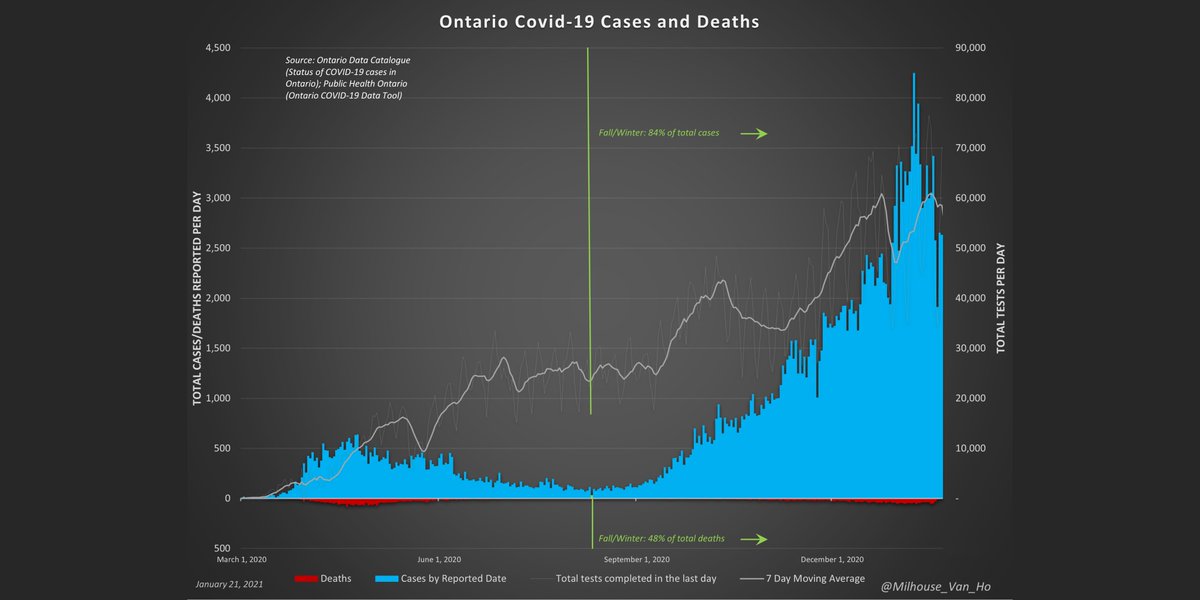
Ontario Fall/Winter season: May be able to declare a peak when average week-over-week growth reaches zero. 
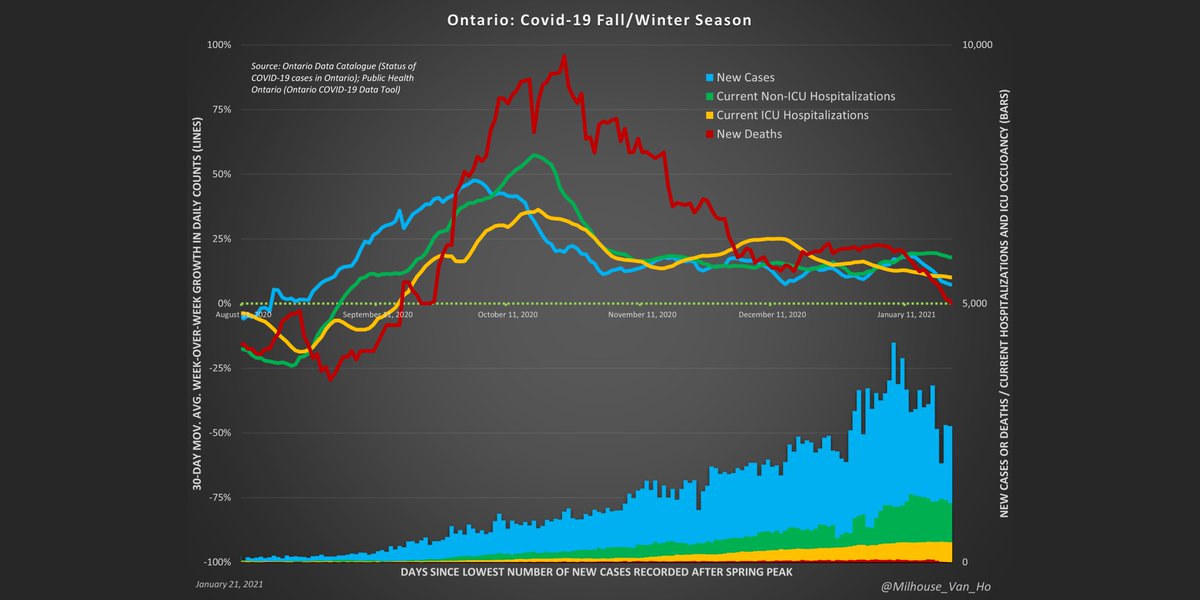
Weekly all-cause deaths and deaths with/from Covid-19 in Ontario, including % of deaths attributed to Covid-19. 
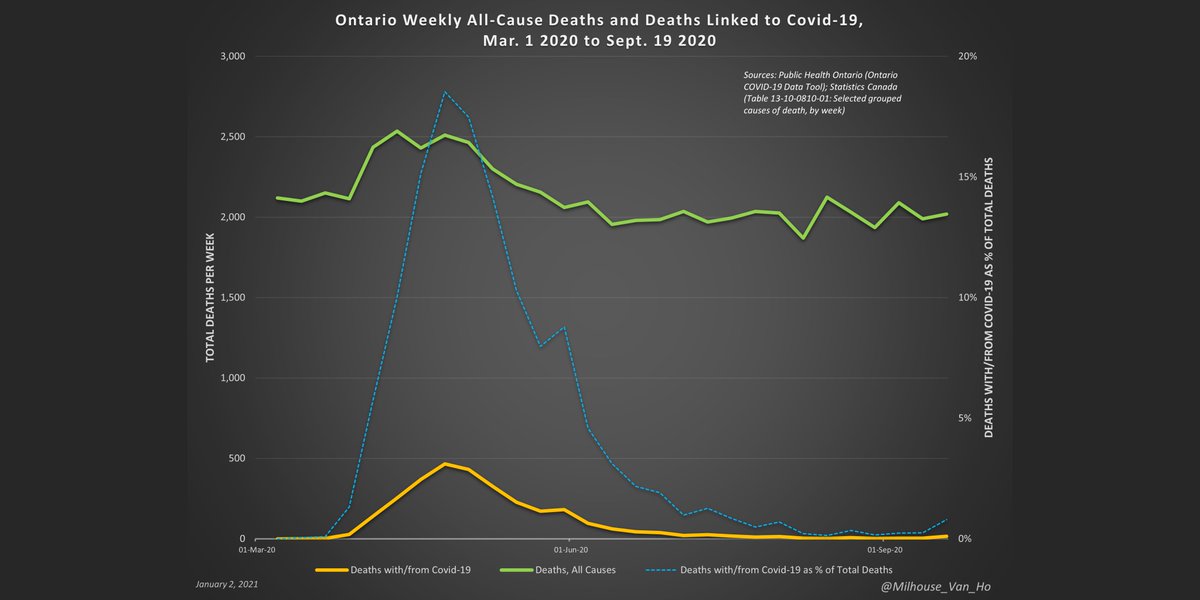
Note: Covid-19 is often not a wholly distinct and separate cause of death as there are other medical conditions involved in many cases.
There are also cases in which it is not even a cause of death, but the individual had tested positive sometime prior to their death.
There are also cases in which it is not even a cause of death, but the individual had tested positive sometime prior to their death.
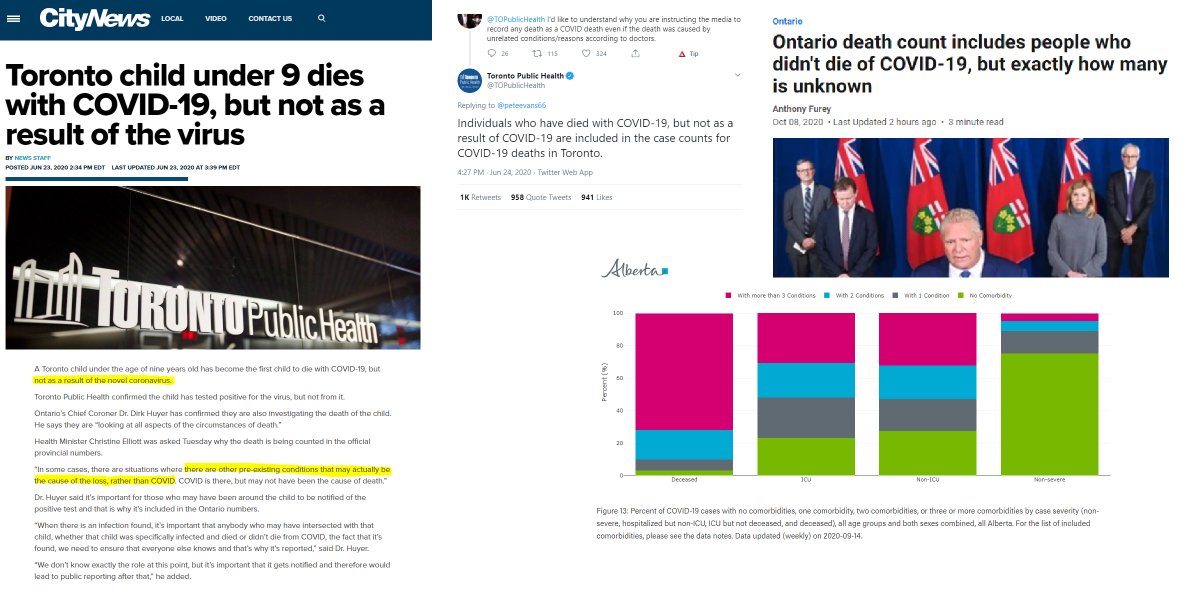
The 80+ age cohort accounts for 52% of all-cause deaths in Ontario and 69% of deaths from or with Covid-19, but only 4% of the population.
More deaths over 90 than under 80.
More deaths over 90 than under 80.
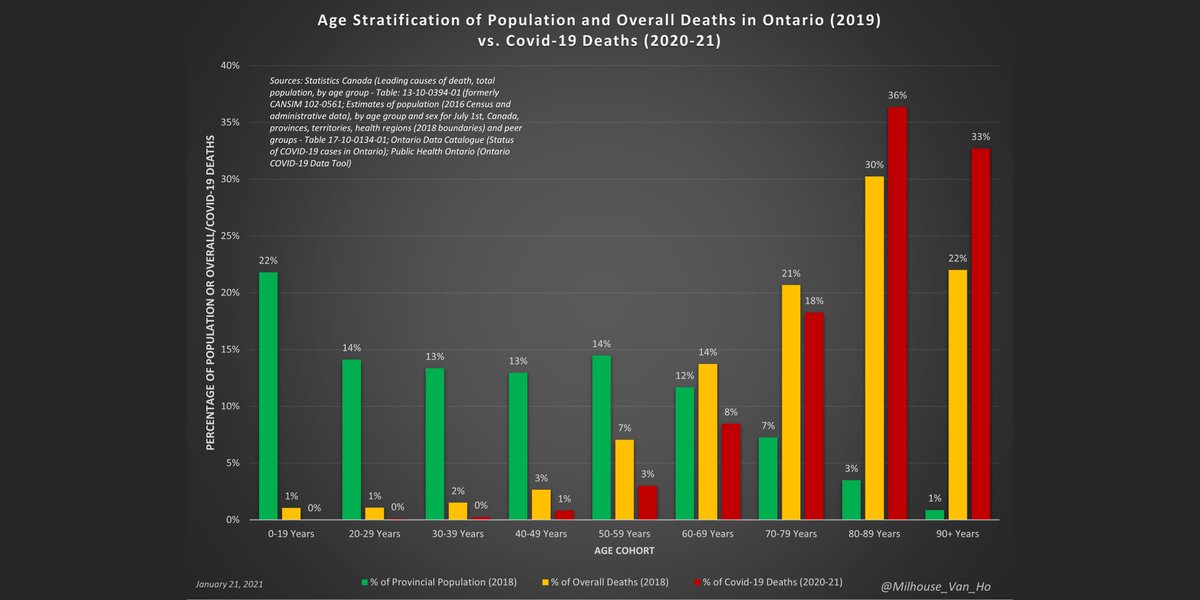
The number of hospitalizations linked to covid-19 in Ontario relative to historical benchmark levels for influenza and pneumonia. 
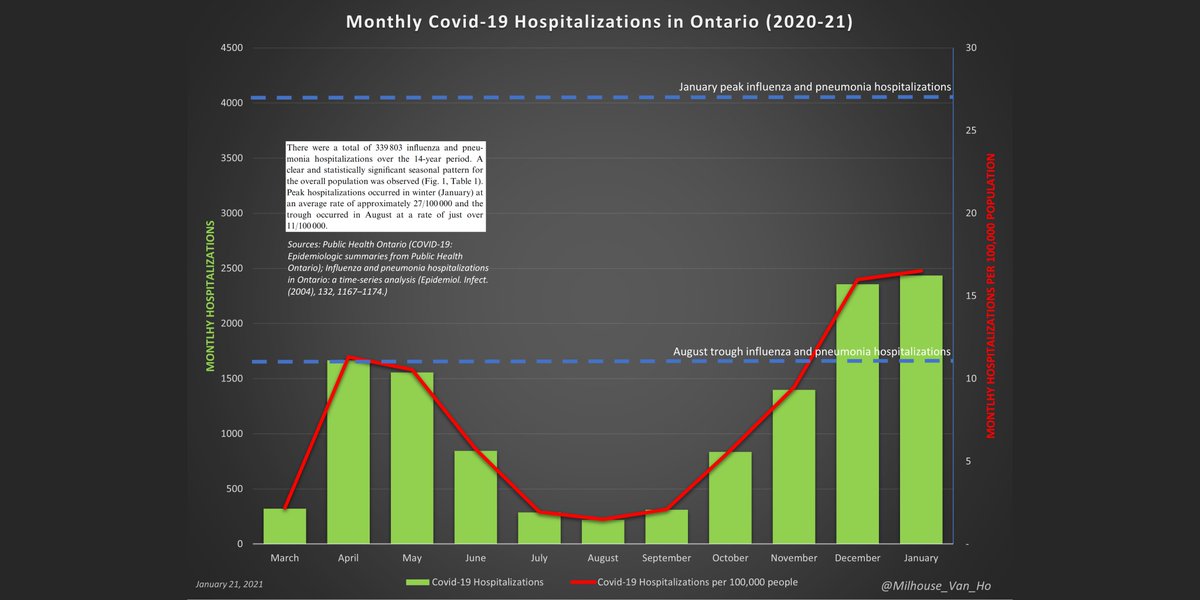
As data on daily new hospitalizations is not publicly available, this is the average daily net change in hospitalizations (ICU and non-ICU). 
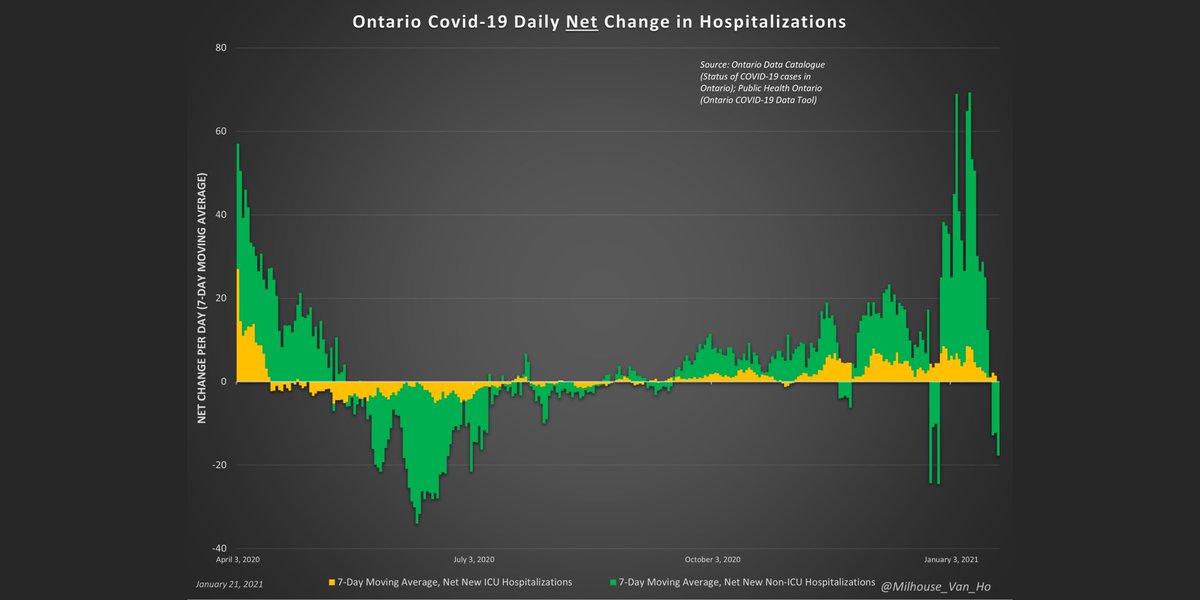
A note on hospitalization data: This may include those who have had a positive test result after being hospitalized for a different reason. 
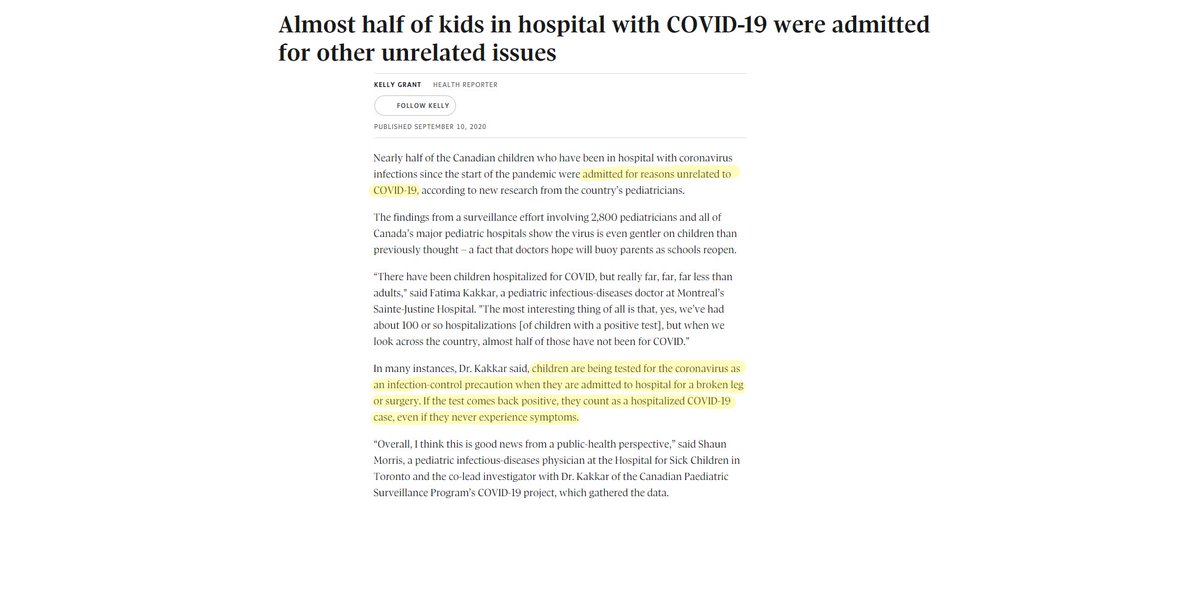
Ontario - The proportion of cases (positive test results) resulting in death (yellow line). (Daily reported deaths divided by average daily cases over prior 28 days.) 
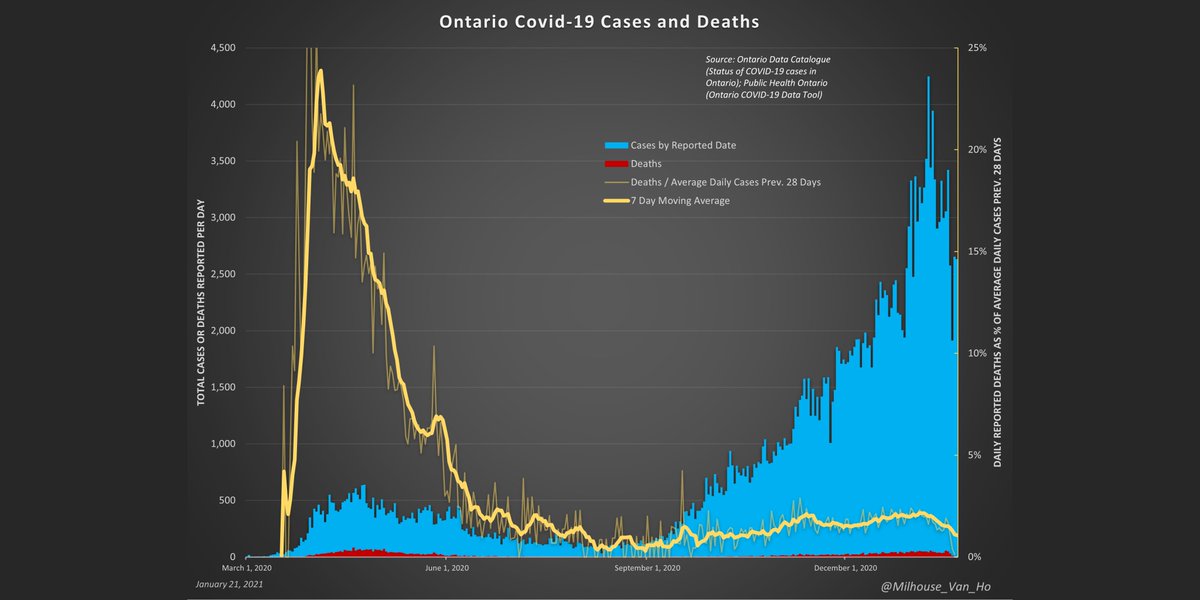
The silver lining of mass PCR testing: a falling CFR.
Ontario – Cumulative case fatality rate (CFR). The proportion of cases (positive test results) resulting in death (yellow line). (Cumulative reported deaths divided by cumulative cases.)
Ontario – Cumulative case fatality rate (CFR). The proportion of cases (positive test results) resulting in death (yellow line). (Cumulative reported deaths divided by cumulative cases.)
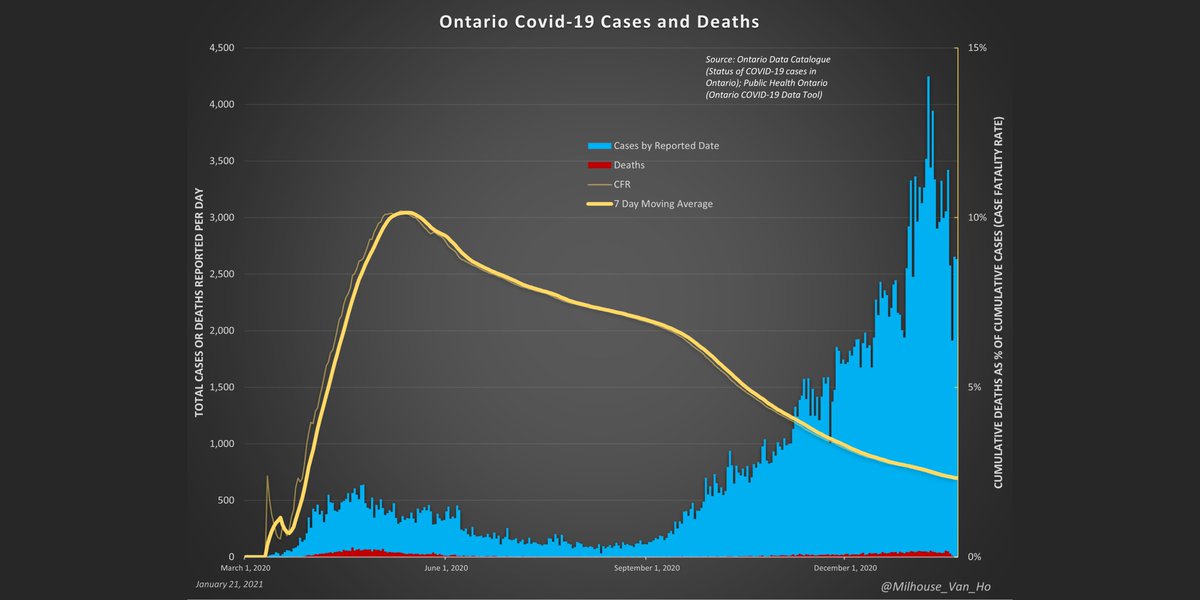
Ontario – Case survival rates (= 100% - case fatality rate) by age.
(True survival rates based on IFR should be significantly higher.)
(True survival rates based on IFR should be significantly higher.)
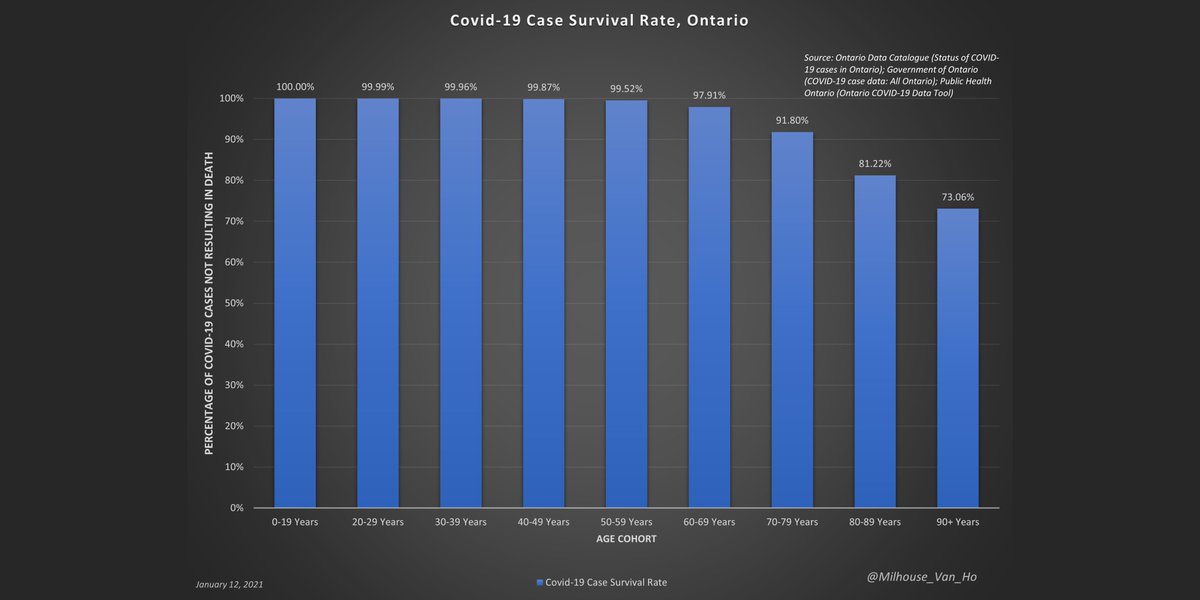
data.ontario.ca/dataset/status…
publichealthontario.ca/en/data-and-an…
news.ontario.ca/en/release/566…
covid-19.ontario.ca/covid-19-epide…
covid-19.ontario.ca/data
www150.statcan.gc.ca/t1/tbl1/en/cv.…
www150.statcan.gc.ca/t1/tbl1/en/cv.…
www150.statcan.gc.ca/t1/tbl1/en/tv.…
publichealthontario.ca/en/data-and-an…
news.ontario.ca/en/release/566…
covid-19.ontario.ca/covid-19-epide…
covid-19.ontario.ca/data
www150.statcan.gc.ca/t1/tbl1/en/cv.…
www150.statcan.gc.ca/t1/tbl1/en/cv.…
www150.statcan.gc.ca/t1/tbl1/en/tv.…
• • •
Missing some Tweet in this thread? You can try to
force a refresh
